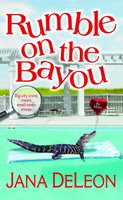STATUS: Okay, I have a secret to divulge. I didn’t go to World Fantasy because I opted to be in the
What’s playing on the iPod right now? No little iPod.
I just had to chuckle at one of the posted comments from Friday’s entry about agents walking the manuscript over to the editor. Because no agent, even if they live in the Big Apple, would ever walk a manuscript over to a publishing house therefore saving the messenger fee.
Why? Well, first, who wants to lug loads of paper around the subway? But here’s the real reason. Agents don’t mail manuscripts these days. I kid you not. We email it. There are some exceptions (and agents know the editors who will insist on a hard copy etc.).
It’s very rare that I’ll actually snail mail a manuscript. For the good majority of my projects, there’s not enough time. I’ll have an offer in within days and if an editor asked for a hard copy, he or she probably hasn’t even received it before the excitement gets going. I end up emailing it anyway.
And I want to be very clear that I’m not poking fun at this comment poster. In fact, I think the he or she is brilliant for bringing it up because this puts me in mind for a whole series of rants I could do this week about publishing misconceptions and the perceived advantages and disadvantages of being based in New Yor (or not) and how we actually work.
The “manuscript mailing costs” just being one of them.

